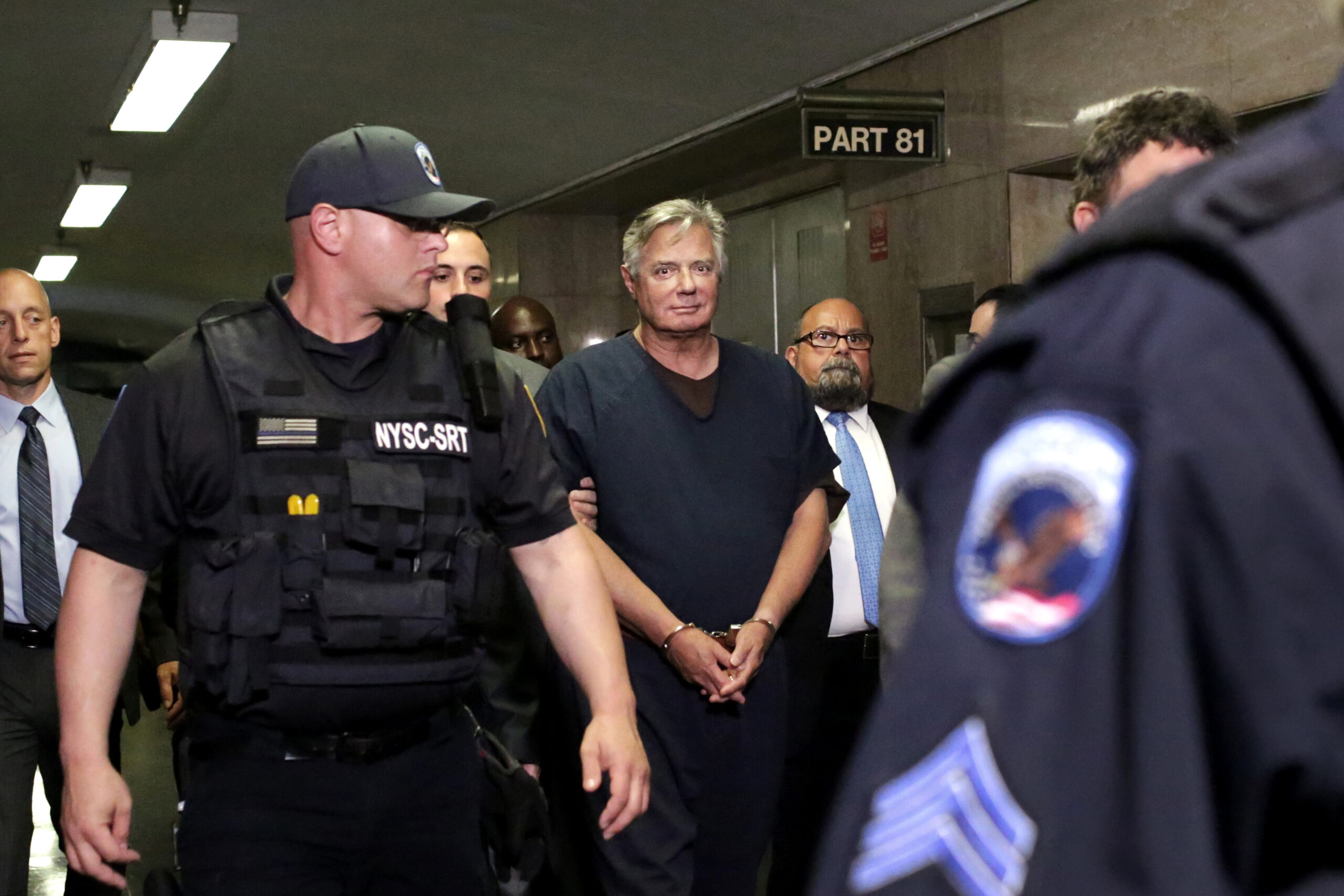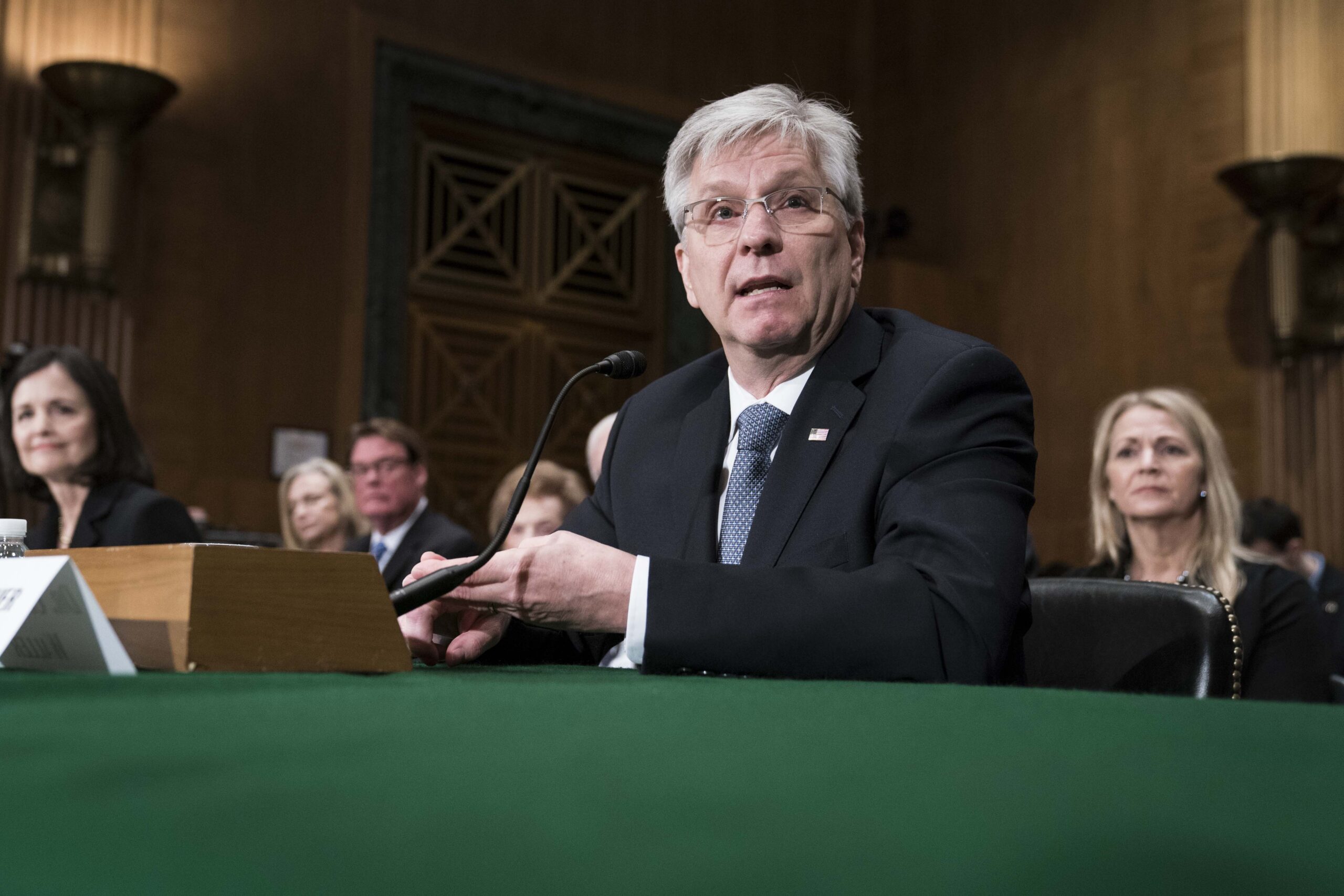Brescia, Italy, is not the most obvious place for a disgraced American politico to make a triumphant return.
But when Paul Manafort appeared at a political event there in April — less than five years after his convictions on financial and lobbying crimes as well as witness tampering were wiped away by a pardon from President Donald Trump — it marked the completion of an unlikely full-circle journey from high-flying global fixer to federal inmate and back.
Manafort was in the industrial city on the outskirts of Milan with a new client on whose behalf he was trying to engineer a political makeover that evoked some of the 1980s-era projects that made him a near mythic figure in the lucrative world of foreign campaign consulting and lobbying.
In those days, Manafort made his name by helping launder the reputations of blood-stained foreign figures whom he sold to Ronald Reagan’s Washington as Cold War allies. But it’s a new era in Washington, and the pitch has changed. Instead of winning over an American administration by casting his clients as anti-communist stalwarts, he’s positioning them as comrades in Trump’s war against globalist, deep-state elites.
Hence his partner at the event in Brescia: Sali Berisha, a former president and prime minister of Albania who had been sanctioned by the U.S. State Department for “significant corruption” and charged in a corruption case at home, was seeking a return to power in a May 11 parliamentary election.
Running as the head of the conservative opposition against the ruling Socialist Party of Prime Minister Edi Rama, Berisha had reinvented himself as a Trump-like victim of a witch hunt by domestic rivals and left-wing globalists including the billionaire investor George Soros and former President Joe Biden’s administration. The messaging, according to two people familiar with the effort, was heavily shaped by Manafort.
Never mind that for years, Berisha had been an avowed internationalist and NATO defender who had expressed appreciation for Soros and cultivated relationships with both George Bushes, as well as Bill and Hillary Clinton.
In Brescia, at a meeting of Albanian expatriates expected to cast votes in the upcoming election, Berisha’s effort to affiliate with an American president who had emerged as the unofficial leader of a right-wing populist movement was driven home by the two operatives who were seen flanking him in the front row of a crowd in which supporters waved Italian and Albanian flags, as well as those with the emblem of Berisha’s political party.
On his right was the co-manager of the 2024 Trump campaign, Chris LaCivita, wearing a slightly rumpled light-blue suit jacket with a tie drooping over his ample belly. On Berisha’s left, looking fit in an immaculately tailored, perfectly pressed dark blue suit with a red tie and a confident smile beneath a head of well-coiffed thick silver hair was Manafort. If any of the would-be voters in the crowd had issues with the operative’s legal history and broadly unpopular pardon, it is not clear if they were publicly voiced.
The appearance, days after Manafort’s 76th birthday, was perhaps the most public manifestation of a push to drum up business that began not long after he was pardoned.
Manafort’s associates say it’s partly an effort to rebuild his finances and partly an attempt to reclaim his legacy and go out on his own terms.
“When everybody is searching for you and they want your advice and they want to listen to you … it just makes you feel validated to a certain extent,” said Hector Hoyos, a longtime friend and former business partner. “He is fulfilling that elder statesman role at this time in his life.”
Hoyos said that most of Manafort’s work since the pardon had been with corporations, rather than political clients. For instance, since Trump’s return to the White House, Manafort has been advising crypto interests on how to navigate Trump’s orbit.
Yet in the weeks after Election Day, Manafort, sensing opportunity, began aggressively courting far-right populist interests around the world looking to align themselves with Trump.
Among those for whom Manafort has explored the possibility of doing elections-related work: a French billionaire who has backed anti-immigration politicians such as Marine Le Pen and an ultraconservative Peruvian mayor who is eying a presidential campaign next year, according to people familiar with his efforts.
In recent months, Manafort has also consulted with the party of Milorad Dodik, the pro-Russian authoritarian who has served as president of the self-governing Balkan territory of Republika Srpska. Manafort was enlisted to help prepare for an election, according to four people familiar with his work.
The preparations came as Dodik sought help from Trump to fend off pressure on multiple fronts. He’s facing sanctions in the U.S. and criminal charges in Bosnia for disobeying the international official tasked with overseeing the 1995 Dayton Accords peace agreement that ended bloody sectarian fighting between Bosnians, Serbs and Croats. Dodik, a Serbian nationalist, has denied that the Srpska army committed genocide against Bosnian Muslims during that war.
Dodik’s government had enlisted a number of Trump allies to try to persuade the U.S. administration to lift the sanctions and pull back on the Dayton Accords enforcement. Not unlike what Manafort did with Berisha, Dodik’s American supporters have cast him as a target of Democrat-aligned institutions intent on punishing him for daring to defy them.
Manafort’s consulting in Srpska, which has not been previously reported, focused on domestic politics, and not the sanctions or court cases, according to people familiar with it.
Representatives from the Srpska government did not respond to questions about Manafort’s role.
The efforts appear to have been thrown into limbo late last month, when Dodik made concessions to a court decision seeking his ouster as president. Even as he continued to signal that he still considers himself the president, he announced during an appearance in Russia that he was anointing a loyalist, who is also under U.S. sanctions, as the party’s preferred candidate to replace him in a special election next month.
Manafort said his consultation with Dodik’s party had nothing to do with trying to influence U.S. policy.
In a written statement this month, he denied that he had met with anyone in the U.S. government regarding “any foreign clients. I do elections overseas, but no lobbying.”
Manafort made his name in politics by helping to devise a new model of consulting. It involved running U.S. political campaigns as a consultant and then, once his clients were in office, seeking to influence them as a lobbyist for various corporate interests. In the 1980s and 1990s, he expanded the model internationally, reaping millions of dollars to run electoral or public relations campaigns for foreign politicians and also lobbying for their governments or groups in Washington.
The work made him rich, as he spent decades traveling the world amassing tens of millions of dollars representing a rogue’s gallery of kleptocratic dictators, brutal warlords and rapacious oligarchs. But it also made him notorious.
Manafort’s representation of such clients as the brutal Philippine dictator Ferdinand Marcos and the bloodstained Angolan guerilla leader Jonas Savimbi was featured prominently in a 1992 watchdog’s report called “The Torturers’ Lobby.”
But in the cases of Marcos, Savimbi and many others, Manafort helped win support in Washington by positioning them as allies of the Reagan and Bush administrations in the global rivalry with the Soviet Union.
“I never worked with a country that was contrary to U.S. foreign-policy interests. That was the one criteria in anything we did,” Manafort told me. “The way I would balance it is if they were on the side of the U.S. Now, I say that in a broad way. U.S. foreign policy is called pro-democracy, but it’s not always pro-democracy, it’s pro-U.S.”
For instance, he called Savimbi, who was credibly accused of burning opponents in bonfires at public rallies, “Reagan’s freedom fighter against the Cubans” who were then helping Angola’s pro-communist government battle the rebels.
Manafort launched a sophisticated campaign that turned Savimbi into a cause célèbre in Republican circles, while tamping down concerns from government bureaucrats about his brutality, ideological flexibility and hunger for power. With American assistance facilitated by Manafort, whose firm would be paid more than $5 million in reported fees for its work, Savimbi kept fighting the Angolan government through the Reagan and Bush years.
By the time Savimbi was killed by Angolan government soldiers in 2002, the civil war he had prosecuted for three decades had left an estimated 500,000 Angolans dead and 4 million homeless.
Without the assistance Manafort procured for Savimbi, the fighting likely wouldn’t have dragged on so long — or been so deadly.
About one month after Savimbi’s death, a permanent ceasefire agreement was signed.
By then, of course, the Cold War was over — and the question of what buttons to press in order to woo Washington had gotten a lot more nuanced.
Foreign political consulting is a lucrative but murky industry for American consultants. They can collect huge paydays from shadowy interests with little paper trail, since the campaign finance disclosure requirements in most countries are less stringent than in the United States. And, while the consultants are often regarded by clients as a conduit to Washington, political consulting work does not by itself trigger disclosure requirements in the U.S. under the Foreign Agents Registration Act or FARA. It only requires people to file reports with the Justice Department detailing lobbying or public relations work in the U.S. for international political concerns.
Manafort has not registered under the act for Berisha’s party or any other clients since he got out of prison. Berisha’s party will be required to disclose its payments to its American consultants for political work by Nov. 3, according to the Albanian election commission.
Separately, Berisha’s allies entered into a $250,000-per-month contract with a lobbying firm that has ties to Secretary of State Marco Rubio to try to lift the sanctions on the Albanian politician.
Questions about FARA compliance and compensation are not insignificant for Manafort.
After one of his best paying clients — a Russia-aligned strongman president of Ukraine — was ousted from power in 2014 by mass street protests against his corruption and pivot to Moscow, Manafort started having trouble paying his bills. He fell behind on credit card payments that included his $210,000-per-season Yankees’ tickets and other expenses. His finances were stretched further by his unsuccessful fight to fend off charges that he violated FARA and committed financial crimes related to the Ukraine work.
While he worked on the Albanian campaign with some of the same team members he brought to Ukraine — including the pollster Tony Fabrizio — Manafort says he is being careful to avoid anything that could even faintly resemble lobbying.
And yet, it was easy to see how his team’s efforts in Albania might appeal to a certain audience at 1600 Pennsylvania Avenue. That was made apparent by Berisha’s own messaging and his unorthodox decision to tap some of Manafort’s associates — though not the famously press shy Manafort himself — to deliver speeches on the campaign trail.
In one speech in a rural area of northern Albania, Philip Griffin, a longtime Manafort deputy who had worked alongside his boss in Ukraine, drew a direct line between Trump’s cause and Berisha’s.
“In America, the socialists tried to destroy Donald Trump using the legal system. But Donald Trump and the American people wouldn’t have it, wouldn’t let it happen,” Griffin told a cheering crowd waving American flags and those of Berisha’s Democratic Party. “Here in Albania, the socialists are trying the same tricks. And I’m here to tell you they won’t be successful here either.”
LaCivita, who recruited Manafort as a senior advisor and Fabrizio as a public opinion analyst to join Berisha’s team, made several appearances in Albania on behalf of Berisha, opening one speech by asking the crowd, “Who is ready to make Albania great again?” In another forum, LaCivita called Rama “nothing more than a puppet of George Soros,” and branded Berisha “a true friend of the United States, and who will successfully work with President Trump and the United States.” LaCivita declined to comment. Fabrizio did not respond to requests for comment.
While Albanian candidates had relied on American consultants in previous elections, they had never been so prominently featured, said Agon Maliqi, an Albanian political analyst who is a fellow at the Atlantic Council.
“This time around, I think it was more in the spirit of the Trumpian moment — bringing people attached to Trump to signal both domestically and externally that this is part of a similar wave, and that Albania is part of it,” said Maliqi.
It made sense for Berisha to try to wrap himself in the Trump banner, Maliqi said, because pro-American sentiments run deep in Albania, but he said it didn’t really fit Berisha’s decades of political positioning.
“Berisha has a history of strongman rule, but as a pro-NATO trans-atlanticist who admired Reagan and worked closely with the Bush Administrations, he more comfortably aligns as more of a classical Republican,” Maliqi said.
It also could have been intended to brush back Albanian prosecutors pursuing a corruption case against Berisha related to a land deal involving his son-in-law, since Albanian law enforcement receives assistance and guidance from the U.S. government.
Presumably, Berisha’s camp wouldn’t have embraced Trump if they didn’t think it would work with actual Albanian voters. But the potential to win goodwill in Washington is an extra benefit — especially because, in Washington, fewer people are aware of how incongruous the MAGA rhetoric sounded coming from an establishment figure like Berisha. But if this particular reinvention might seem odd for the candidate, it seems perfectly natural for his consultant.
While Manafort remains in Trump’s good graces, he is not nearly as close to the inner circle of foreign policy decision-making as he was under Reagan or Bush.
But the formula of casting far-flung politicians as pro-Trump populists could be a blueprint for winning favor in Trump’s Washington in much the same way that opposing communism was during the Reagan and Bush administrations, even if it didn’t have as much impact in Albania as Manafort’s earlier work for Savimbi or Marcos.
Headed into the Albanian parliamentary election, there were some rumblings that the State Department might grant Berisha a waiver that would allow him to travel to the U.S. despite the sanctions. It would have been an October surprise — except in May — that Berisha’s allies predicted would boost him to victory by affirming the narrative that he had connections at the highest levels of the Trump administration that could help Albania.
Except it didn’t happen.
The sanctions remained in place and Berisha lost badly.
His party secured less than a third of the vote, down from its performance in the last election. The Socialists, meanwhile, finished with more than 53 percent, extending Rama’s term as prime minister.
Nonetheless, Alfred Lela, a spokesman for Democratic Party of Albania, argued that the engagement of Manafort and LaCivita was a success.
“Through the assistance of our American friends, we were able to demonstrate the Democratic Party’s capacity to establish a modern political presence and to promote the vision that all Albanians should enjoy the same opportunities for freedom and prosperity that President Trump is working to provide in the United States and around the world,” Lela said in a statement.
Not everyone was as magnanimous.
Berisha and his team took another page out of the Trump playbook, claiming the election was rigged by the Socialists.
LaCivita amplified the claim, as did the lobbying firm hired by Berisha’s allies.
A recount requested by his party found only marginal errors in the vote count.
Asked if he agreed with the claim that the election was rigged against Berisha’s party, Manafort did not respond.
Technically, the contract between Berisha’s party and LaCivita is still active, but it’s not clear if the Albanian opposition leader, who just turned 81, will make another bid for prime minister.
This article is adapted from Kenneth Vogel’s new book “Devils’ Advocates: The Hidden Story of Rudy Giuliani, Hunter Biden, and the Washington Insiders on the Payrolls of Corrupt Foreign Interests.”




